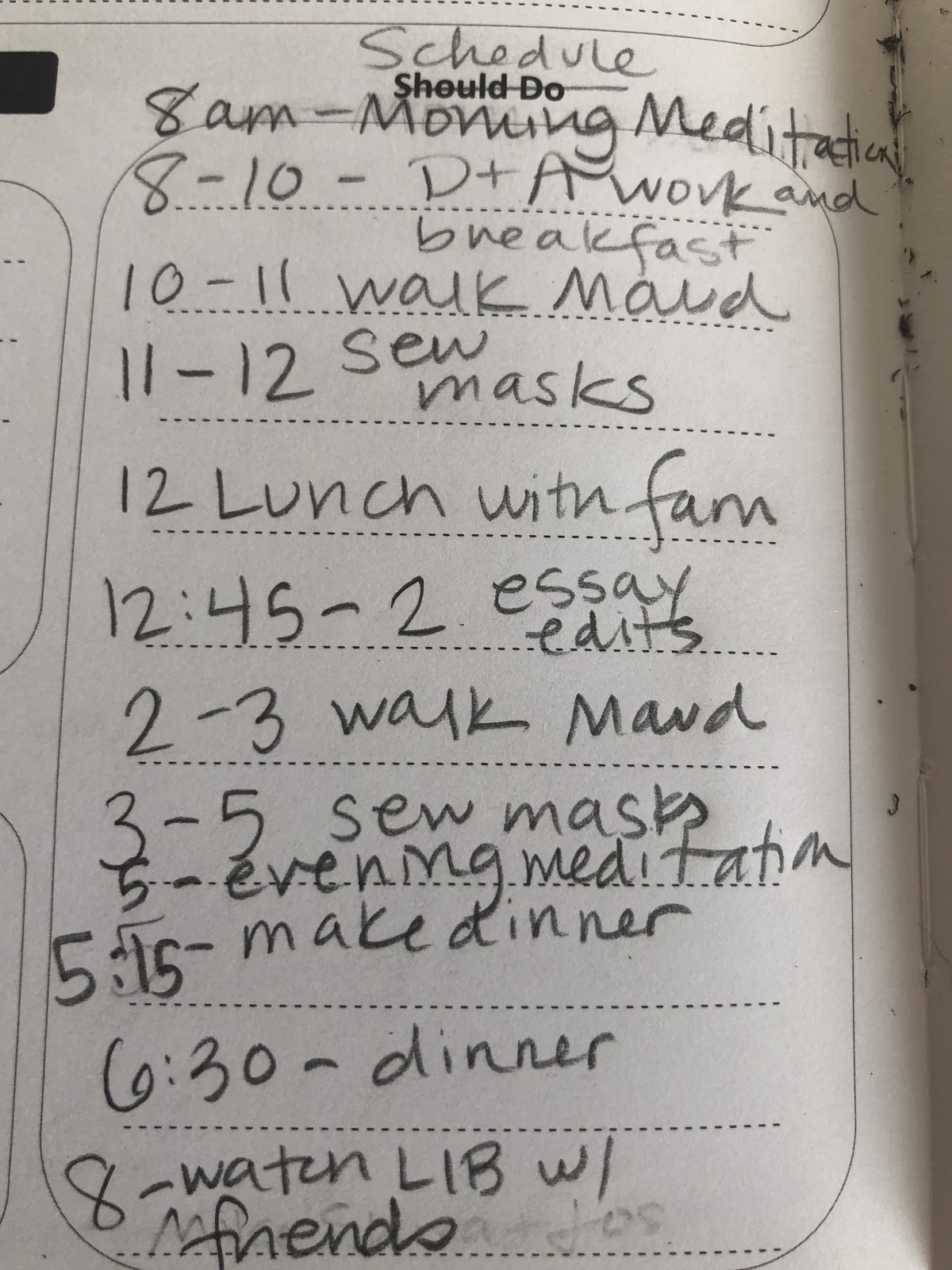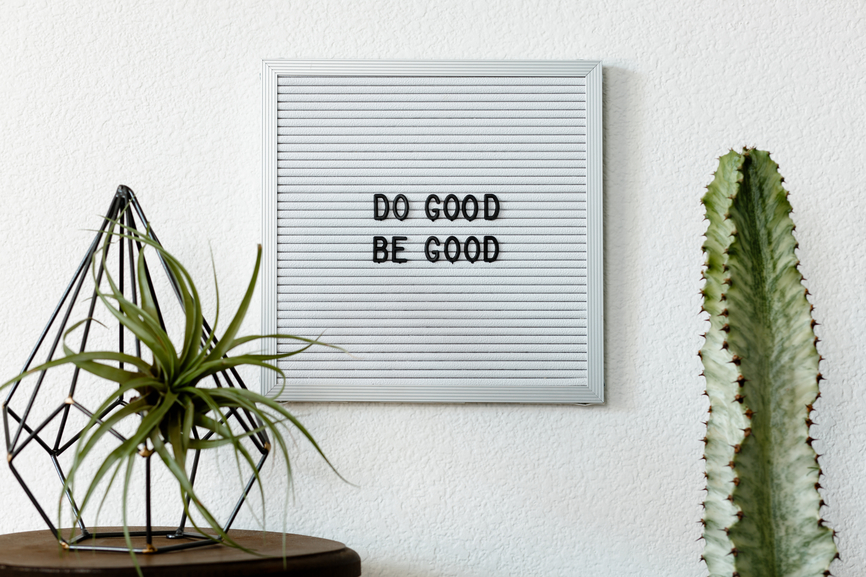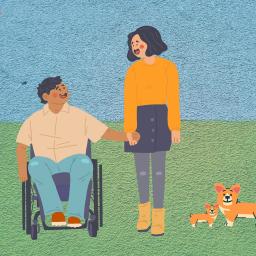Different & Able editor Erin here, writing to share some strategies that I’ve found helpful for dealing with my anxiety about Covid19. A little background: I’ve had anxiety for as long as I can remember. Two decades of therapy have helped me gain some insight into practical strategies that work to control it. Usually I don’t need to implement these strategies daily in order to feel well. When I was younger and my anxiety was less under control they were crucial, but now they’ve become so ingrained that I don’t really need to think about them consciously. That said, I realized early that Covid19 was going to be a huge mental health challenge, and since the beginning of the pandemic I’ve reintroduced them. It’s helped a lot. Here are some things you can try if you feel like you’re spinning with anxiety right now.
1. Look to the future, but not too far in the future.
If you’re feeling depression right now, which for so many of us is a cousin of anxiety, I get it. One way I’ve been hedging against getting bogged down by depression is to plan ahead, but not too far ahead. By that I mean, I am planning out my days and the coming weeks carefully, but not looking further into the future than that. For instance, like so many people, I don’t know how Covid19 will affect me professionally. I won’t know that for a few months, at least. So now is not the time to focus on that part of my future, since I have so little information and can’t do anything about it. Instead, I’m focusing on the day ahead of me and the week to come. How will I feed my family this week? What meals will I make to utilize everything in the pantry and avoid trips to the store? These are the questions I’m trying to answer, instead of wondering where we’ll all be in a year.






